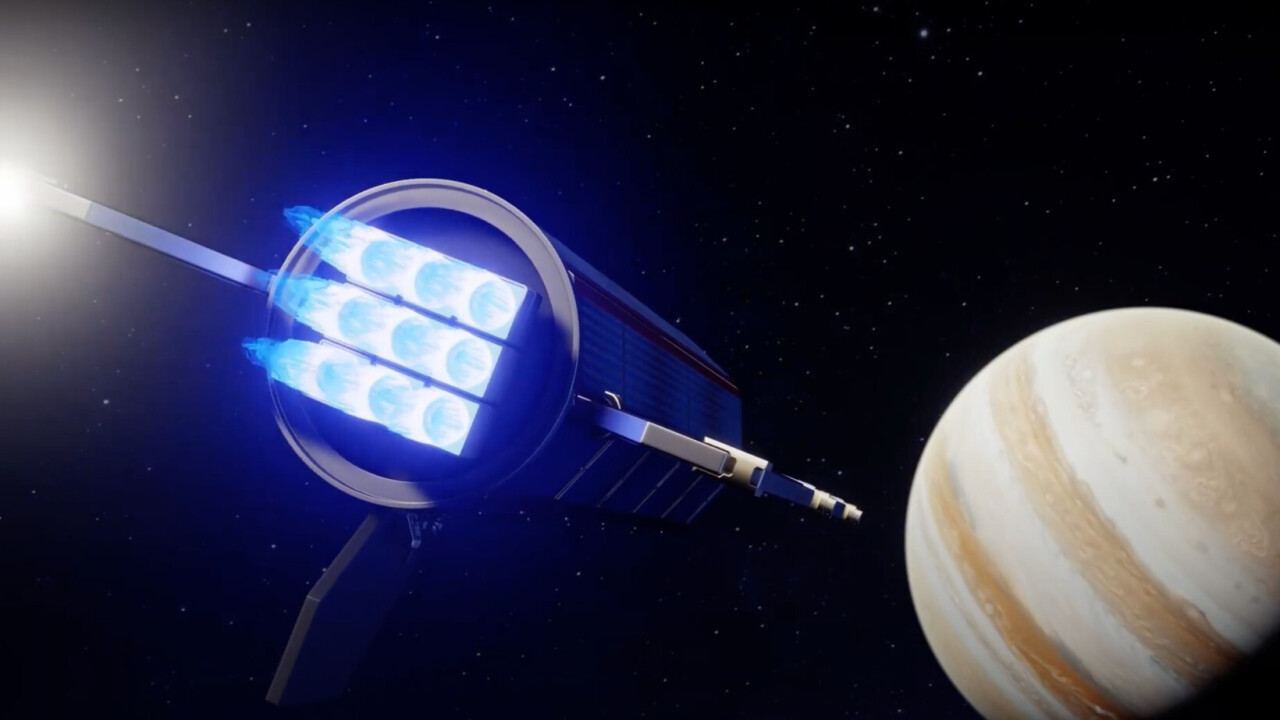
In 2018, Elon Musk put a Tesla in space. Like many of the billionaire’s antics, it was a publicity stunt. However, it pointed to an undeniable truth: the future of space travel is electric.
Most spacecraft today — like cars and trucks back on Earth — burn chemicals to get around. But space agencies like NASA, ESA, and France’s CNES have been experimenting with electric thrusters for decades, in a bid for a cleaner, more efficient way to propel satellites. A few startups have spun out from this work. One of them is Paris-headquartered ION-X. It hopes to build the most efficient propulsion system ever put in space.
ION-X has developed a so-called electrohydrodynamic (EHD) electrospray thruster. It works by applying a high-voltage electric field to an ionic liquid fuel. (Ionic liquid is made up of organic salts that are liquid at room temperature). The electric charge breaks up the fuel into tiny charged particles that eject from the back of the thruster at high speeds — propelling the satellite through space.
Today, ION-X announced it has raised €13mn in funding as it looks to break out from the lab and industrialise its technology. This adds to €4mn in seed capital, raised back in 2022.
“This funding round is a decisive step for ION-X,” said Thomas Hiriart, the company’s CEO. “We are deeply convinced that our propulsion solutions can revolutionize the space mobility market, contribute to sustainable, innovative, and cost-effective space missions, and carve out a significant commercial position in a market eager for reliable thrusters.”
World-renowned engineer Jacques Giérak founded ION-X in 2021 following decades of research into electrospray propulsion systems at the French National Centre for Scientific Research (CNRS) and CNES. Giérak co-founded the company with Yves Matton, a partner at the early-stage deep-tech venture firm Technofounders, which has also invested in Ion-X.
Unlike chemical thrusters, which burn fuel to produce thrust, or ion thrusters that use xenon, ION-X’s system is far more energy-efficient and compact. It’s better at precisely manoeuvring satellites, the startup claims. The ionic liquid fuel is also non-toxic and nonflammable, and thus safer. However, it’s less powerful than combustion-based systems, so it’s better suited to smaller satellites, like those in Low Earth Orbit (LEO) — which is, nevertheless, a booming market.
ION-X is set to demonstrate its technology in orbit for the first time early next year. Its thrusters will propel a satellite by Danish company Space Inventor as part of a larger ESA mission. The company is also building a production facility near Paris. Here it hopes to produce 200 ion thrusters per year by 2028.
The funding round was led by aerospace-focused VC Expansion and Technofounders. The European Innovation Council (EIC) also joined in, as did the Île-de-France Region, through its Reindustrialisation Fund.
Get the TNW newsletter
Get the most important tech news in your inbox each week.




